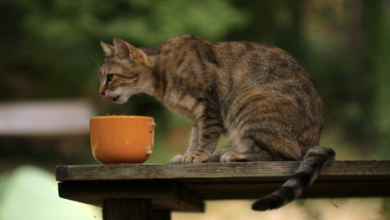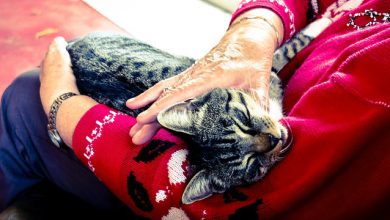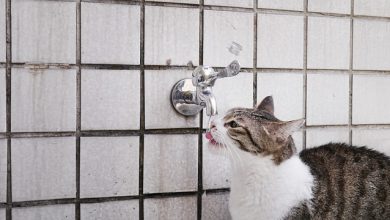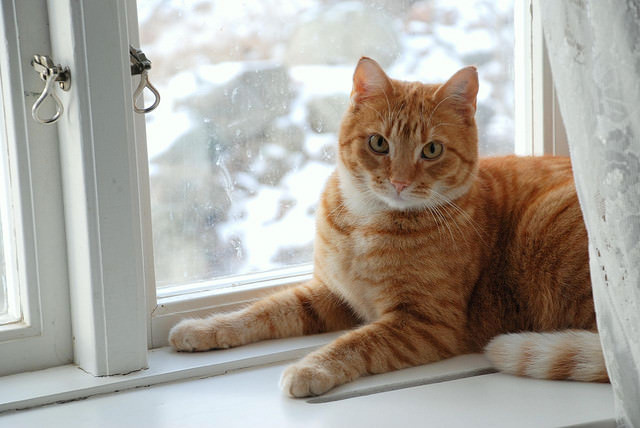
It’s no wonder that flaky skin is one of the most common conditions affecting cats. After all, there are many factors that could cause your cat’s skin to become flaky. These factors range from cosmetic to dangerous, so it’s always best to meet with your veterinarian if you notice changes to your cat’s skin or coat.
Let’s look at five of the most common reasons you may be seeing flakes.
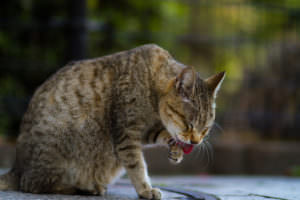
Image Source: Takashi Hososhima via Flickr.com
Under grooming
Most cats do a great job grooming themselves, but some cats have a harder time getting the job done.
If your cat has long, thick fur, she may not be able to access the dead skin trapped underneath. Cats who are overweight or have mobility challenges may also have a hard time grooming hard-to-reach areas.
If you suspect under grooming, help her out with regular brushing sessions.
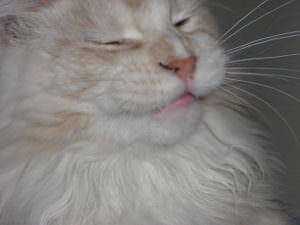
Image Source: VirtKitty via Flickr.com
Allergies
Your cat may be sensitive to one of any number of irritants such as her food, environment (pollen, mold, etc.), fleas, or grooming products.
Your veterinarian can do an allergy test to determine the irritant. The results may encourage you to switch to more mild grooming products or introduce an air purifier into your home. If she is sensitive to her food, your vet may suggest a prescription diet.
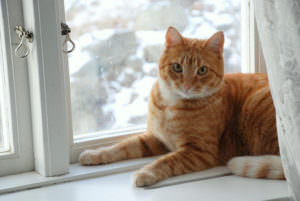
Image Source: Charlotte Claeson via Flickr.com
Seasonal changes
Just like you, your cat may develop drier skin in the winter months.
Try adding a humidifier to your home to add moisture back into the air and into your cat’s skin.
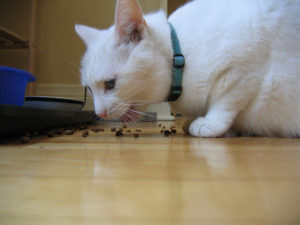
Image Source: Simon Law via Flickr.com
Poor nutrition
If your cat is eating a low-quality food, she may not be getting all of the nutrients she needs to thrive and be healthy. Low-quality foods may also not have enough Omega-3 fatty acids.
A high-quality food will be more nutritionally well-rounded. A food designed for sensitive skin will also contain added Omega-3s and vitamin E, essential nutrients for healthy skin and coats.

Image Source: Pixabay.com
Underlying medical condition
Finally, there may be an underlying medical issue that needs to be addressed. A bacterial infection, fungal infection, parasites, heart disease, or thyroid disease (just to name a few) could all cause flaky skin.
Since dry skin can be an indicator for a serious underlying issue, make an appointment to see your veterinarian as soon as you notice the change. Your veterinarian may perform a blood test, urinalysis, an allergy test, or get a skin scraping to better understand the trigger.
Whether simple or serious, early diagnosis is often critical for a speedy recovery.
